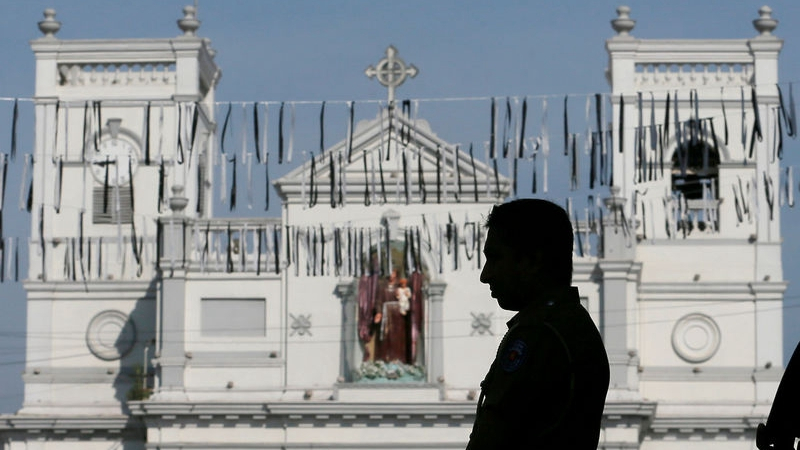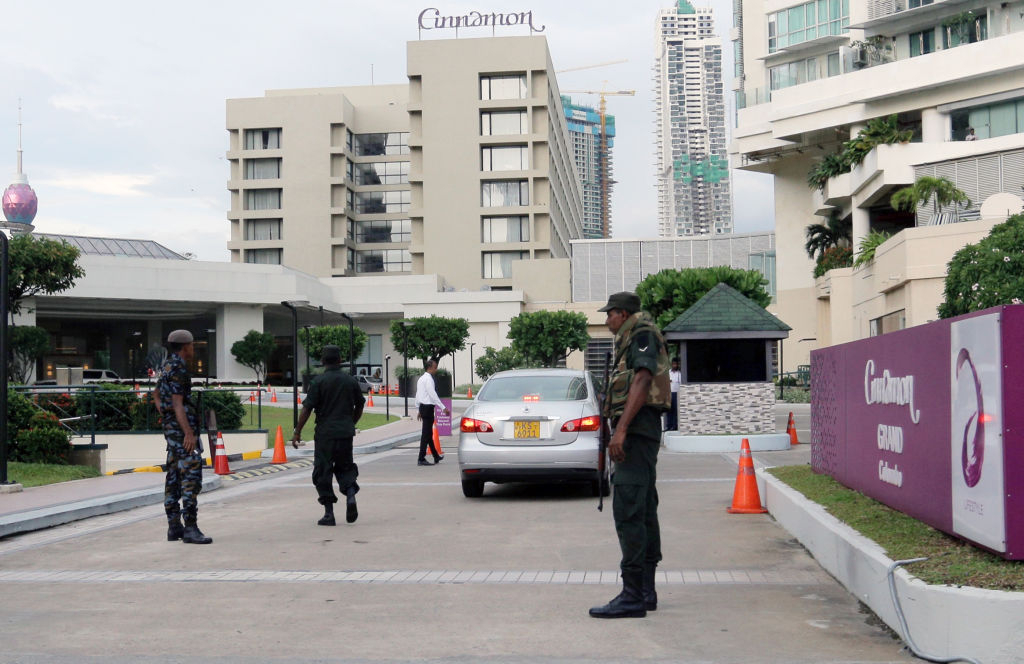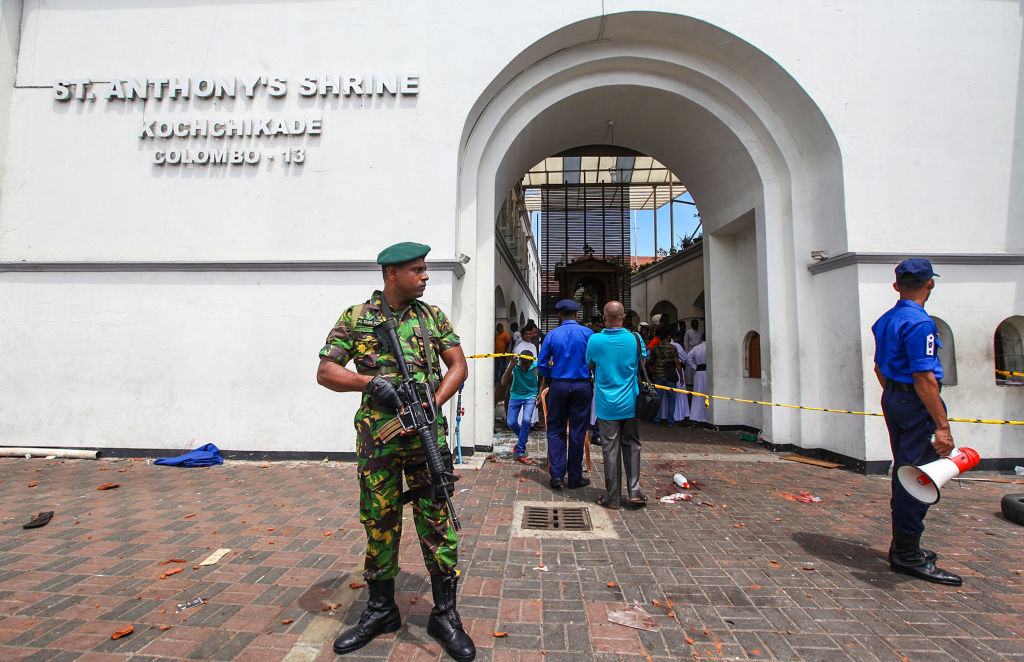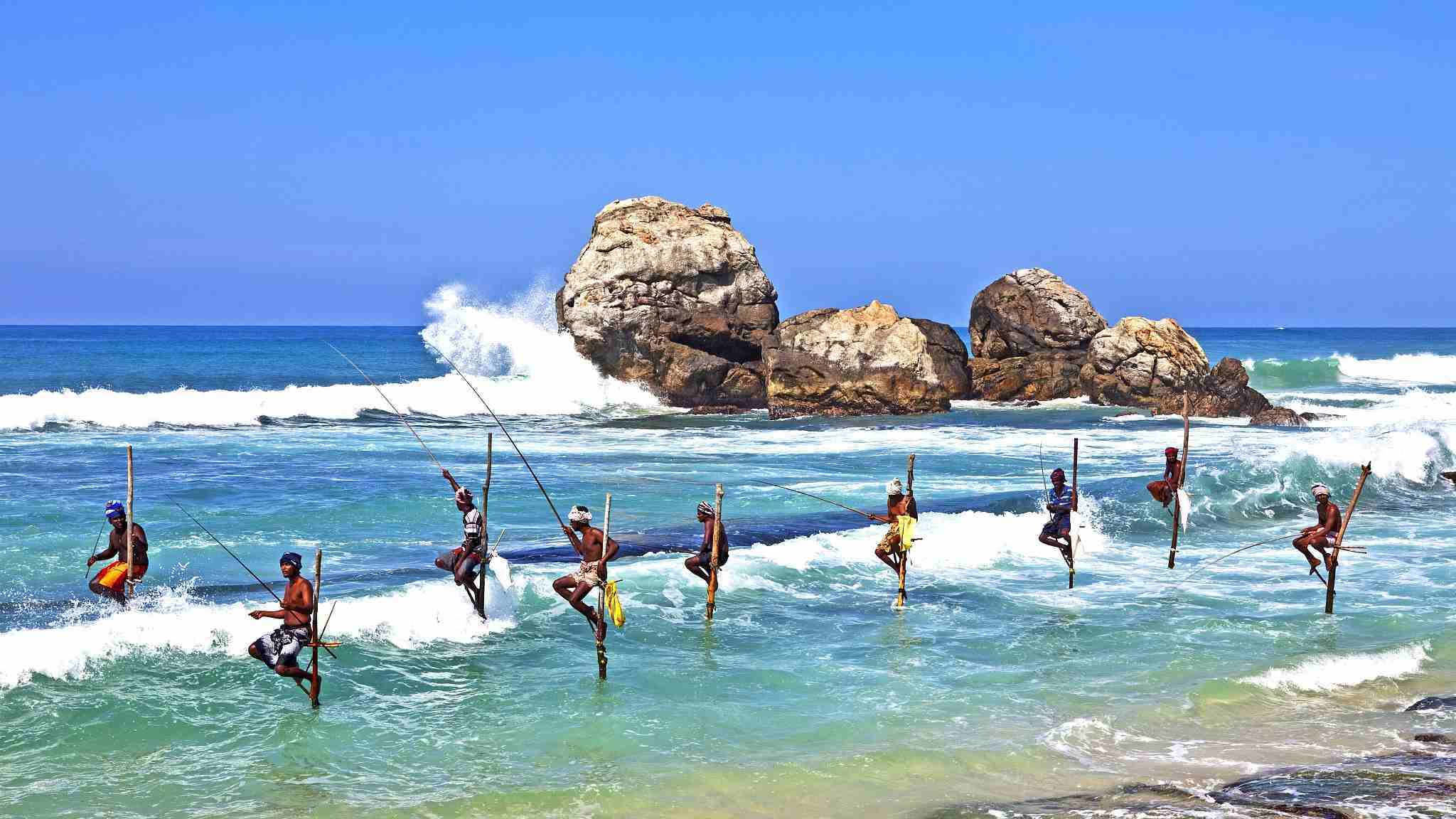
Opinion
22:23, 25-Apr-2019
After the Sri Lanka bombings: Changes and struggles
Updated
10:33, 26-Apr-2019
Ning Shengnan

Editor's Note: Ning Shengnan is an assistant research fellow at the Department for Developing Countries Studies, China Institute of International Studies. The article reflects the author's opinion, and not necessarily the views of CGTN.
The world has witnessed another tragedy. On Easter Sunday, April 21, at least 253 people were killed and hundreds more wounded in a series of bombings across Sri Lanka, making it one of the world's deadliest terrorist attacks. The Islamic State group claimed responsibility for this incident.
As the investigation goes on, more questions have been raised. People are asking why the government did not do more to prevent the carnage since early warnings of possible attacks had been been circulating in the intelligence sector.
Behind the government's dysfunction is the feud between the president and the prime minister.

Sri Lankan military personnel inspect a vehicle upon arrival at the Cinnamon Grand Hotel in Colombo, Sri Lanka, April 22, 2019. /VCG Photo
Sri Lankan military personnel inspect a vehicle upon arrival at the Cinnamon Grand Hotel in Colombo, Sri Lanka, April 22, 2019. /VCG Photo
Mutual recriminations came out in the first place. On the one hand, President Maithripala Sirisena claimed that the information was not passed on to him by officials and he was not aware of likely bomb attacks. On the other hand, the side of Prime Minister Ranil Wickremesinghe said that the PM had been removed from the National Security Council, and therefore, neither he nor his ministers were kept updated on the security risk.
Political infighting at the highest levels of the Sri Lankan government is not a secret.
After the elections in 2015, the Sri Lanka Freedom Party (SLFP) led by Sirisena and Wickremesinghe's United National Party (UNP) formed a coalition government. However, the temporary alliance soon started to collapse. The president accused the PM of being weak and corrupt, and also claimed that a minister in the PM's Cabinet was plotting his assassination.
Last October, President Sirisena suddenly announced he was ousting Prime Minister Wickremesinghe and replacing him with former President Rajapaksa. However, Wickremesinghe refused to resign and claimed the sack was unconstitutional. The political standoff lasted nearly two months, but finally, the Supreme Court reversed the president's decision and PM Wickremesinghe was reinstated. The crisis ended, but the division and disarray went on.

An indefinite curfew has been put in place across the country following Sunday's attacks. /Getty Images
An indefinite curfew has been put in place across the country following Sunday's attacks. /Getty Images
Last Sunday's bombings could exert multiple effects on the political scenario of this island state. To start, changes have been made to the security apparatus. “I must be truthful and admit that there were lapses on the part of defense officials,” said President Sirisena in his first national address since the attack.
He then replaced Defense Secretary Hemasiri Fernando and took measures to sack the Inspector General of Police, Pujith Jayasundara. The president has also appointed a special committee, led by a Supreme Court judge, to investigate the lapses concerning this incident.
Furthermore, the bombings and the government's failure to thwart the bombings could cast a tremendous influence on the future leadership of Sri Lanka. According to its constitution, the next presidential election of Sri Lanka is due in December 2019, with parliamentary election to follow in 2020. After this incident, it is possible that some voters would lose faith in the incumbent government, blaming it for its inefficiency in addressing such critical security issues.
Also, severe attacks like this usually provoke people's desire for strong leadership. Former President Mahinda Rajapaksa, on the other hand, has long been credited by his supporters as a strongman for his achievement of leading the country to end the long-lasting civil war. And his party achieved sweeping victory in the last provincial council election in February 2018, winning 239 seats out of the total 340 seats in provincial councils.
Although he himself could not run for another term of the presidency because of constitutional limits, the Rajapaksa family members, including his brother Gotabhaya Rajapaksa, the former Defense Secretary who helped to end the civil war in 2009, could easily borrow support from the former president's prestige.
In the meantime, the attack also constitutes an earthquake in the economic sense, and the consequences could last for a longer period. Since 2015, Sri Lanka's economy has been on the decline. The growth rate, which used to be around 7-8 percent, has come down dramatically to about 3.5 percent. In 2018, the GDP growth rate was 3.2 percent.
The external debt burden is quite heavy. By the end of 2018, Sri Lanka's external debt amounted to 52.3 billion U.S. dollars, while its foreign exchange reserve was a meager amount of 6.9 billion U.S. dollars.

Stilt fishermen on a beach in Koggala, Sri Lanka. /VCG Photo
Stilt fishermen on a beach in Koggala, Sri Lanka. /VCG Photo
Among the main economic sectors, tourism has played a vital role in Sri Lanka's economic growth. In 2018, 2.3 million tourists poured into the island after it was named as a top country for travel. Tourism has become the country's third-largest and fastest-growing source of foreign currency, which is critical for Sri Lanka to maintain financial subsistence given the country's crippling levels of debt.
However, with the devastating bombings, the peace and harmony that Sri Lanka used to be famous for are gone. Tourists fear that there could be more blasts, and many of them have decided not to go to Sri Lanka in the near future. The plummeting number of tourists would severely hit the tourism sector. For a small country like Sri Lanka, whose economic revenue depends heavily on tourism, the blow is fatal.
(If you want to contribute and have specific expertise, please contact us at opinions@cgtn.com.)

SITEMAP
Copyright © 2018 CGTN. Beijing ICP prepared NO.16065310-3
Copyright © 2018 CGTN. Beijing ICP prepared NO.16065310-3